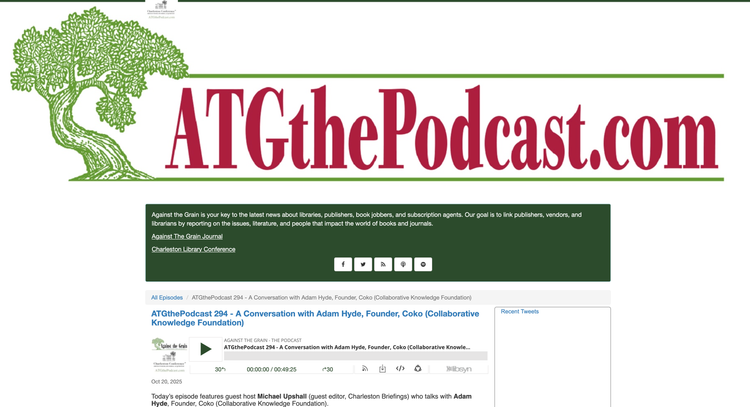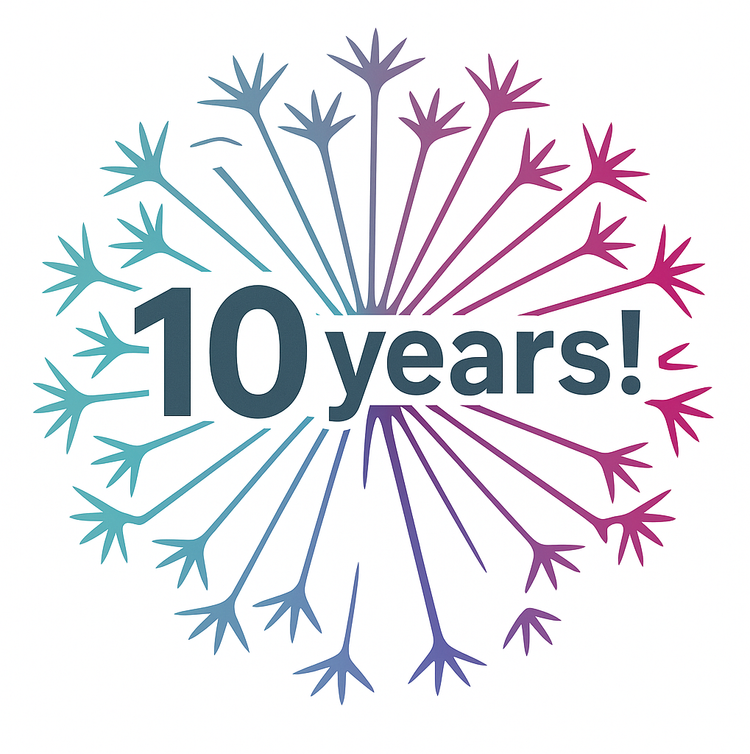Coko's Evolution: Stage Two

You'll read it here first folks... an exciting step forward and very necessary evolution is underway...Coko is almost 10 years old (gasp!) and has served as a vehicle for developing a range of open-source platforms tailored to the needs of various organizations, including Caltech, HHMI, NCBI, DataCite and others. Importantly, and less known, we have collaboratively built infrastructure that is being used in a multitude of 'other peoples' publishing apps including EPMC+, Phenom, Nucleus, eLifes Libero and more. If you are in scholarly publishing or academia there is a very good chance you've used platforms we have built but you probably would never have known it.
Our model has been straightforward: offer development services to build 100% open source, state of the art applications, and use the generated surplus to fund the creation of other technologies that the scholarly sector critically needs. This approach has allowed us to develop and maintain tools that serve both the broader community and specific institutional needs.
I think, given the above, we can lay claim to have proven out that this model works and we can build open infrastructure collaboratively that is 100% open source. It's something I'm extremely proud of. This has been hard work, but satisfying to see it work and show other folks that it can be done.
How We Have Done It: The Robin Hood Model
At the core of Coko's mission has been a Robin Hood-like strategy. By providing custom development services for not-for-profit open-source platforms, we were able to channel resources back into the development of essential components such as file converters, word processors, typesetting engines like PagedJS, and comprehensive platforms like Ketty and Kotahi. These tools have now reached a state where they are production-ready and are in active use. The broader adoption and impact of these tools are just beginning to unfold.
However, the Robin Hood model also has a down side - distraction. Essentially we have had to juggle numerous projects at once to make all this work. We scaled to 40 people in 2022-2023 to manage it. While this sounds like success, few orgs in this space that build open source tools can claim this, it isn't in itself a great metric. The metric we hold ourselves accountable to is the quality of each application and, importantly, adoption and impact.
The Maturity of Key Platforms
It’s important to highlight the maturity of Kotahi, Ketty, and PagedJS. These platforms have evolved from promising concepts into robust, production-ready solutions. Kotahi has already demonstrated its value as a powerful, flexible scholarly communications platform, enabling a more open and efficient approach to publishing. Ketty, designed for book production, has become a go-to tool for many in the industry, offering a seamless integration of AI capabilities to enhance the single source publishing workflow. PagedJS, our typesetting engine, continues to set new standards in web-based print production, enabling high-quality, print-ready PDFs directly from HTML and CSS for a diversity of organizations from the Louvre, the Getty and many others.
Each of these platforms represents significant innovations in its respective domain, and each is now mature to the point that signals a readiness for wider adoption and impact.
The Strategic Transition
With this in mind, we have made the decision to move all these software projects to new organizations that can provide the necessary dedicated focus and governance. The first of these transitions is already underway with Kotahi, which will soon be managed by the newly formed Kotahi Foundation. We are currently working closely with our highly invested stakeholders to define the structure and timeline for this transition. We will work out the best places for Ketty and PagedJS to reside and have given ourselves 18 months to work this out. No matter where each lands, it will a not-for-profit structure with community governance and the products will remain 100% open source forever.
The way I see it, Coko's journey is much like a rocket launch. Up until now, we've been in the first stage of our mission - the initial lift-off. During this crucial phase, we've established our products and worked out a sustainable way to fund their development (which hasn't been easy). This approach has allowed our platforms to reach the maturity required for wider adoption.
Now, it's time for the next stage of our launch. Just as a rocket sheds its initial boosters to achieve greater heights, we're transitioning our projects to new, specialized teams and communities. Giving them the focused attention they need to reach their full potential. We're entering the crucial phase of wider adoption, and for this, we need each product to have its own dedicated, focused governance and structure.
Kotahi, Ketty, PagedJS, and our other platforms are ready to go a lot further, generating widespread impact and changing publishing across multiple sectors. However, they need specialized guidance to navigate the unique challenges and opportunities ahead. These new communities will act as the next-stage engines, taking what we've built and propelling it further into the world of scholarly communication.
Looking Ahead
This transition marks an important evolution in the life cycle of both Coko and the tools we've built. We are out of incubator and stage and by moving these platforms to new homes, we are ensuring that they continue to grow and serve the communities for which they were designed. It's an exciting next phase and I'm looking forward to this next part of the journey. We will be reaching out to a lot of folks to be involved, but if you feel there is something you can do to assist in this next phase then please reach out to me!
It's worth pointing out that Coko is not going away, we will be here for a while as we establish these new structures. Stay tuned!
For more information on our ongoing projects and the future of these platforms, please visit Coko, Kotahi, and Ketty.
© Adam Hyde, 2024, CC-BY-SA
Image public domain, created by MidJourney from prompts by Adam.






Member discussion